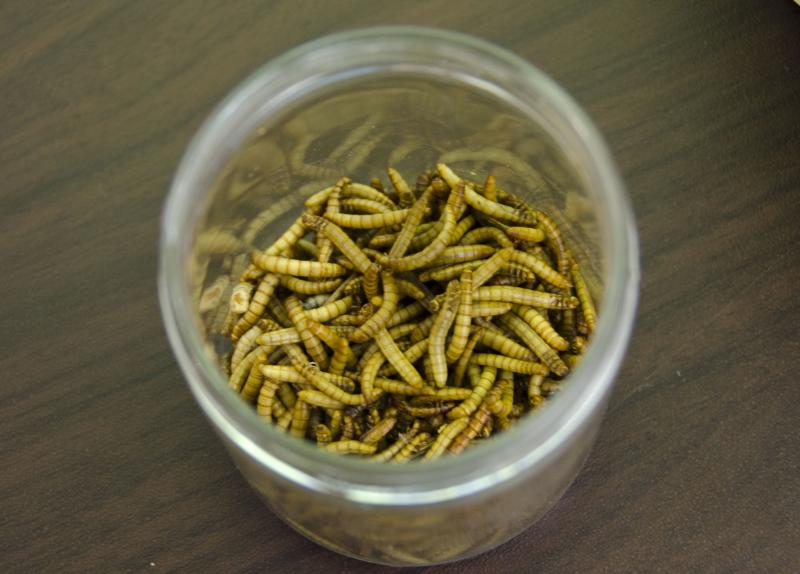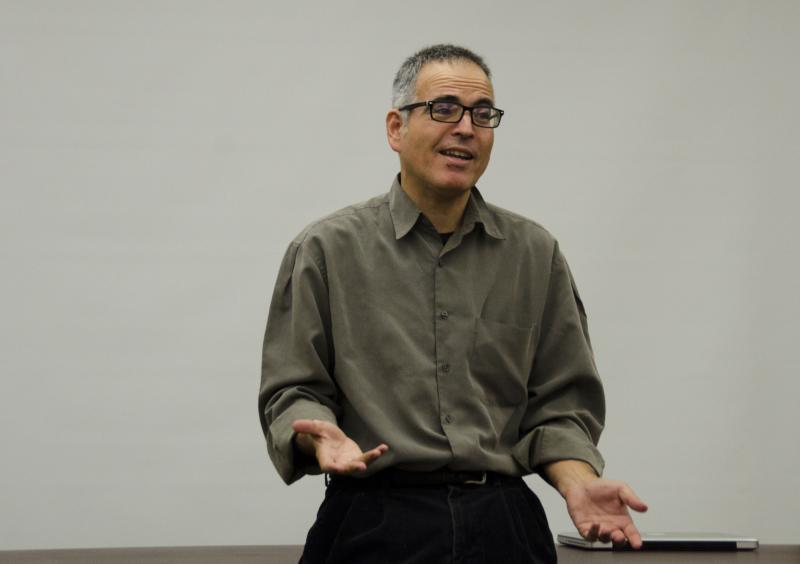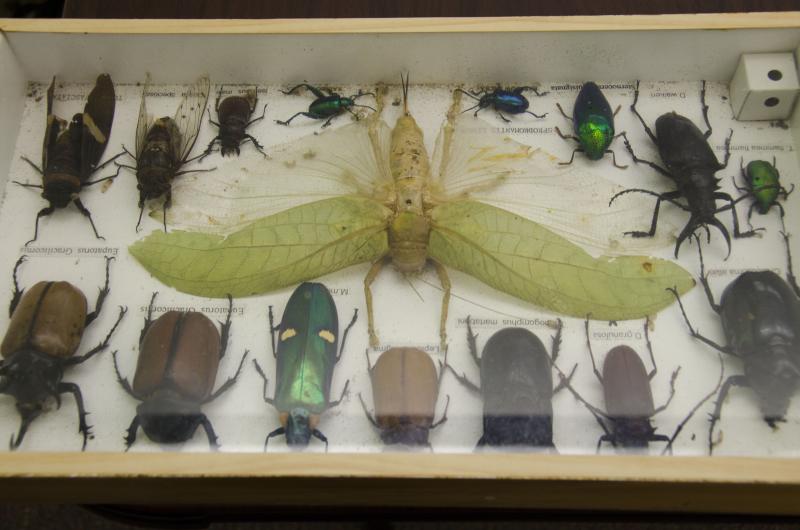David Gracer: Eating bugs is in our future
If cows and chickens become scarce, there's one source of protein that will probably always be available...and it's got six legs. On Tuesday night, teacher and well-known bug eater David Gracer fielded insect-related questions at the Mattapoisett Library.
Gracer, who lives in Providence, discussed his passion for entomophagy, the practice of eating bugs. With climate change, he believes meat will become harder to buy and insects will become a good alternative source of protein.
"We can't have necessarily all the beef and chicken and pork we want in thirty years," he said.
For example, Gracer pointed out that cultivating crickets requires a lot less fresh water than cows, and he's on a quest to convince people that grasshoppers are good.
Edible bug products are growing in number, and not just chocolate covered crickets. Cricket flour (yep, that's dried, ground up crickets) is becoming more popular (gluten free, anyone?).
Gracer was an early adopter of the pulverized insect.
"I think I may have been the first person ever to put a picture of cricket flour on the internet," he said.
For now, the flour is still pretty expensive. Fresh crickets are about $16 a pound. After they're dried and ground up, those tasty exoskeletons amount to little more than 10 ounces. Protein bars with bugs, on the other hand, are much more friendly to the pocket and, said Gracer, can be purchased for about the same price as the insect-free varieties.
Gracer has made a name for himself and a case for eating insects. He was referenced in The New York Times and Discovery Magazine and appeared on The Colbert Report, The Tyra Banks Show and My Crazy Obsession.
One obvious question Gracer often gets asked is whether or not bugs are safe to eat.
A lot of bugs are safe, said Gracer, who has eaten 5,000 different species of creepy crawlies, including scorpions.
"I would eat wax worms (so called because they eat bees wax) and stink bugs every day," he said.
Not surprisingly, cockroaches aren't super tasty.
"I've had three kinds of cockroaches and one of them was OK," said Gracer.
And here's the thing (you're going to want to stop reading this if you're already grossed out), you already eat bugs on a daily basis.
"They're safe to eat because you've been eating them your whole life anyway," said Gracer.
He doesn't mean an accidental inhale while bike riding, the spider in your mouth while you're sleeping legend (Gracer said that's a myth anyway), or the occasional ant in your sugar bowl, which one mom in the audience has already survived.
"I put it in my coffee. It was 6:30 in the morning, so I just kept going," said Patty Berry.
Gracer explained that the food we eat – ketchup, peanut butter, etc. – naturally has bug parts that are impossible to completely remove (sorry, vegans.) In fact, the FDA monitors the number of bug parts in food to make sure it remains within an acceptable level.
That may be cold comfort to many, but if Gracer is right and meat becomes scarce in the coming decades, perhaps we should all start looking at ladybugs a little differently.
And as some scientists have linked shellfish allergies with bug allergies, perhaps there is more of a connection between bugs and crustaceans than we'd like to admit.
Crickets Rockefeller, anyone?

















